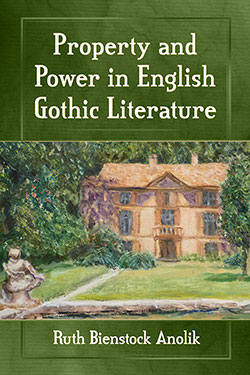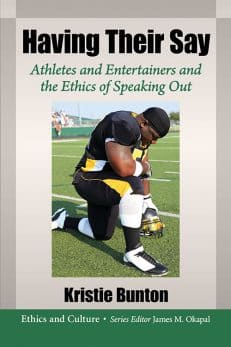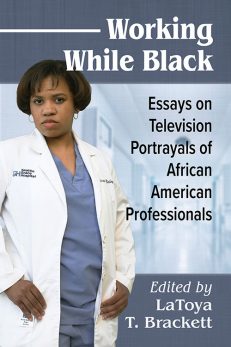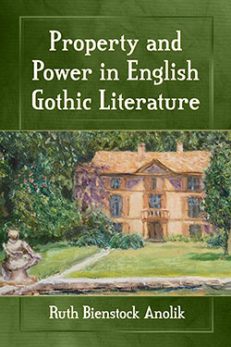Property and Power in English Gothic Literature
Original price was: $39.95.$19.99Current price is: $19.99.
In stock
About the Book
Eighteenth-century England witnessed major social and economic changes, including the commodification of property, person and text through legal containments—enclosure, coverture, primogeniture, copyright. English Gothic authors responded with tropes that worked to dispel the assurances of possession—the contested castle, the beleaguered yet enduring woman, the haunting ghost, the disjointed narrative—warning that seemingly mundane codes of ownership have menacing implications, such as the civil death of women through marriage. This book explores the masterplot of the English Gothic text as a response to the Enlightenment’s rational certainty regarding possession of self, property and narrative.
About the Author(s)
Bibliographic Details
Ruth Bienstock Anolik
Format: softcover (6 x 9)
Pages: 244
Bibliographic Info: notes, bibliography, index
Copyright Date: 2016
pISBN: 978-0-7864-9850-5
eISBN: 978-1-4766-2264-4
Imprint: McFarland
Table of Contents
Table of Contents
Acknowledgments vi
Introduction. Possessions: Property and Propriety in the English Gothic Mode 1
Part I. Castle and Moat: Property Possession in the English Gothic
1. Slippery Properties: The Castle of Otranto and The Old English Baron 13
2. A Century of Loss: Historical Contexts for Property Anxieties 19
3. Fantasies of Return: Property Restoration Imagined 28
4. Nineteenth-Century Expansions 35
Part II. Ghosts: Possession of Person in the English Gothic
5. Self-(Dis)Possession in The Woman in White 47
6. Dispossessions of the Mind and the Body: A Gothic Tropology 56
7. The Double and the Ghost: Refusals of Self-(Dis)Possession 67
8. Resurrection Fantasies: Defying Death’s Dispossessions 76
9. Slavery and Marriage: Gothic Reflections of Political Rhetoric 81
10. Missing Mothers and Suppressed Sisters: The Dangers of Primogeniture 103
Part III. Fragmented Stories; Appropriated Voices: Possession of the Narrative in the English Gothic
11. Gothic Conventions; Narrative Dispossessions 123
12. Contexts of Contested Narratives: Can the Text Be Possessed? 132
13. The Theology of Narrative Dispossession in Maturin’s Melmoth the Wanderer 137
14. Dispossessed and Dispossessing: The Wandering Jew’s Possession of Voice and Narrative 150
Part IV. Beyond the End: Dispossessing Closure
15. “It is only the theory I want”: Repossessing Fiction in Sarah Waters’s Affinity 169
16. The Political Fantastic 191
Conclusion. Toward a Transatlantic Investigation: Possession and Dispossession in American Gothic Literature 197
Chapter Notes 203
Bibliography 223
Index 231
Book Reviews & Awards
“A detailed discussion of property, ownership, and power in English Gothic literature”—SFRevu;
“From detailed discussions of Maturin’s Melmoth the Wanderer to Sarah Water’s Affinity, Anolik tackles the question of why possession always fails in the British gothic literary tradition. Clearly written and theoretically informed, this book is a valuable introduction to the burgeoning field of gothic studies.”—Diane Long Hoeveler, author of The Gothic Ideology; “Beginning with the origins of the Gothic, moving to a rich comparison of numerous nineteenth-century texts, and concluding with a compelling reading of the neo–Victorian contemporary novel, Property and Power in English Gothic Literature traces the Gothic novel’s resistance to containment and order as it persistently fragments and decenters. Anolik makes a significant contribution to Gothic studies in her reading of the novel as a transgressive genre that subverts categorization and inherently resists various forms of critical and readerly ownership and possession.”—Jolene Zigarovich, Sex and Death in Eighteenth-Century Literature; “Teasing out multiple meanings of possession…ownership of property, body, gendered identity, and inner self…Ruth Anolik’s study illuminates a variety of Gothic texts, including major eighteenth- and nineteenth-century examples of the genre as well as a neo-Victorian revision. Lucidly written, deftly argued, and usefully situated in relevant political and social contexts, this book makes a welcome contribution to Gothic studies.”—Tamar Heller, author of Dead Secrets: Wilkie Collins and the Female Gothic.





